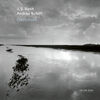Louise Bertin: Fausto
Les Talens Lyriques
Classical - Released January 26, 2024 | Bru Zane
La lyre amoureuse
Les Sacqueboutiers
Classical - Released May 21, 2021 | Flora
Meyerbeer: Robert le Diable
Orchestre National Bordeaux Aquitaine
Classical - Released September 23, 2022 | Bru Zane
Mozart: Le Nozze di Figaro
René Jacobs
Opera - Released January 1, 2004 | harmonia mundi
Tchaikovsky: Eugène Onéguine (Diapason n°598)
Galina Vichnievskaia
Full Operas - Released September 25, 2010 | Les Indispensables de Diapason
Handel: Rodelinda
The English Concert
Classical - Released May 14, 2021 | Linn Records
Cadmus & Hermione
Vincent Dumestre
Classical - Released May 1, 2021 | Château de Versailles Spectacles
Venice
Anastasia Kobekina
Classical - Released February 2, 2024 | Sony Classical
Atys
Christophe Rousset
Opera - Released January 5, 2024 | Château de Versailles Spectacles
Rossini: Il barbiere di Siviglia
Teresa Berganza
Opera - Released January 1, 1972 | Deutsche Grammophon (DG)
Jules Massenet: Ariane
Münchner Rundfunkorchester
Classical - Released September 8, 2023 | Bru Zane
Pancrace Royer: Surprising Royer, Orchestral Suites
Les Talens Lyriques
Symphonic Music - Released May 5, 2023 | Aparté
Récit
Salomé Gasselin
Classical - Released January 13, 2023 | Mirare
Lully : Alceste
Christophe Rousset
Full Operas - Released December 1, 2017 | Aparté
Elisabeth Jacquet de la Guerre: Céphale et Procris
Reinoud Van Mechelen
Classical - Released February 9, 2024 | Château de Versailles Spectacles
J.S. Bach: Clavichord
András Schiff
Solo Piano - Released January 27, 2023 | ECM New Series
Toutes les nuits
Dulces Exuviae
Classical - Released January 6, 2023 | Ricercar
Stravinsky: L'Oiseau de feu; Feu d'artifice; 4 Etudes
Chicago Symphony Orchestra (CSO)
Classical - Released July 7, 2023 | Deutsche Grammophon (DG)
Psyché
Christophe Rousset
Classical - Released January 13, 2023 | Château de Versailles Spectacles
Boulanger, Fauré, Hahn
William Youn
Classical - Released December 15, 2023 | Sony Classical - Sony Music






















 Suppose you have a more precise idea of what you want. If you are searching for the album "Bad" by Michael Jackson, type michael jackson bad. The album in question will be displayed at the top, as it is the most relevant.
Suppose you have a more precise idea of what you want. If you are searching for the album "Bad" by Michael Jackson, type michael jackson bad. The album in question will be displayed at the top, as it is the most relevant.
 By default, search results are sorted in order of relevance. The drop-down menu to the right of "Sort by" allows you to display the results in the desired order.
By default, search results are sorted in order of relevance. The drop-down menu to the right of "Sort by" allows you to display the results in the desired order.